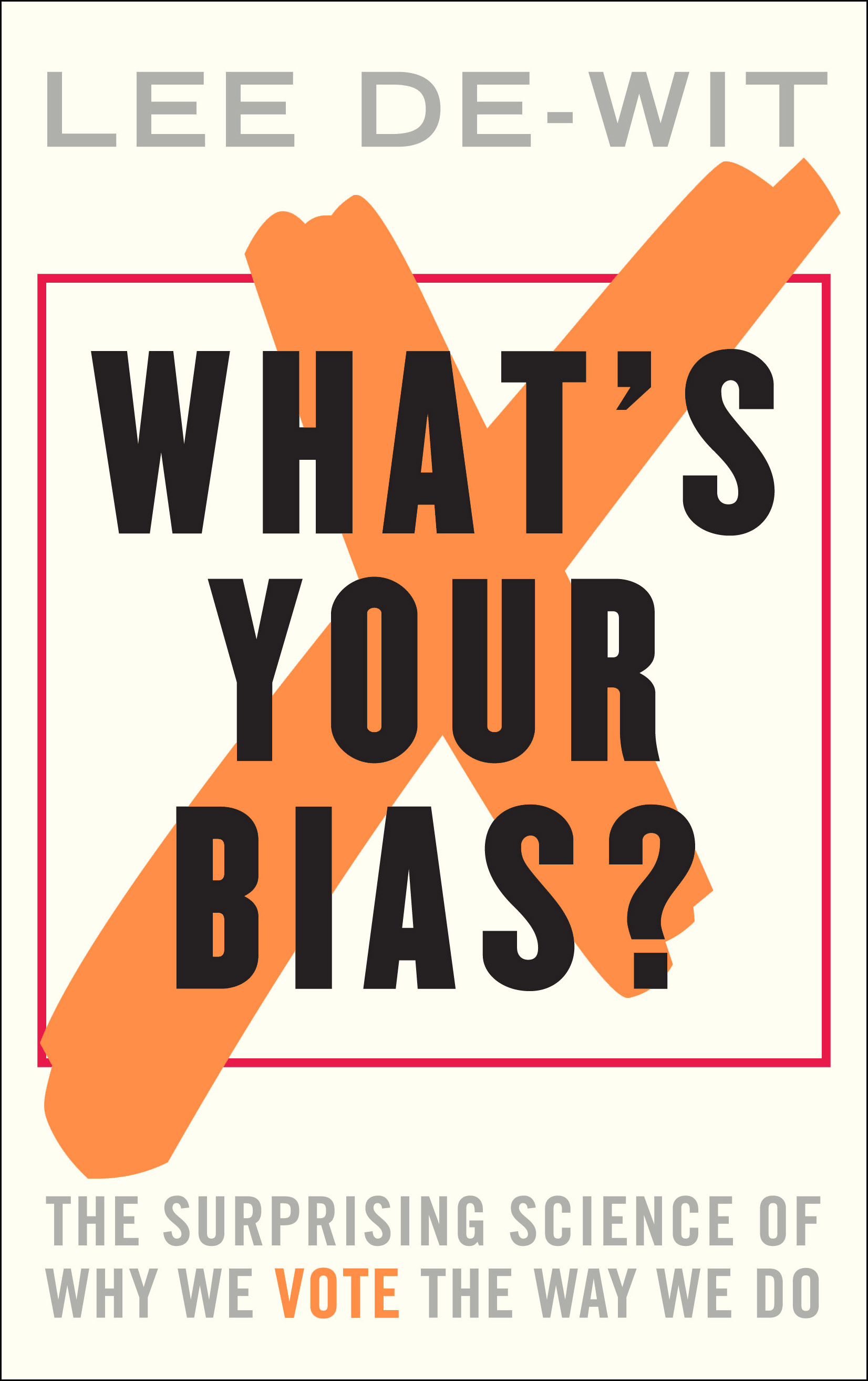What’s Your Bias?: The Surprising Science of Why We Vote the Way We Do

By: Lee de-Wit
Why do we vote the way we do?
Pundits, pollsters and politicians are queuing up to tell us, but do they really know? More importantly, do we really know?
Psychologists have been studying how we make political decisions for years, and the truth is we’re a lot less rational than we think we are; sometimes we vote for reasons we’re not even consciously aware of.
Delving into the science and psychology of politics, What’s Your Bias? gets under the skin to reveal what really drives us – whichever way we vote. In this absorbing book, psychologist and neuroscientist Lee de-Wit explores the subtle – and often surprising – factors that could be influencing our votes, from our personality traits and unconscious biases to our susceptibility to campaign targeting and fake news.
Whether we’re debating nationalism, immigration, welfare or equality, psychology can help us to better understand the decisions we make in modern politics. If you want to know more about yourself, your friends and family, or the bigger political picture, this is essential reading.
-
A highly accessible introduction and essential reading for anyone interested in – and puzzled by – the drama of contemporary politics
- Professor Peter John, author of Nudge, Nudge, Think, Think -
A joy to read . . . takes the reader on a journey from our genes to the structure of our brains, and how those in turn are related to our political attitudes
- Professor Stephan Lewandowsky, University of Bristol -
In a time of extreme political unrest and uncertainty, Lee de-Wit’s What’s Your Bias? provides a thrilling scientific analysis as to why things seem to have gone so awry over Brexit, Trump and the future of reason. … It is a brilliant debut written in an easily accessible style. Quite remarkable
- Professor Bruce Hood, University of Bristol




